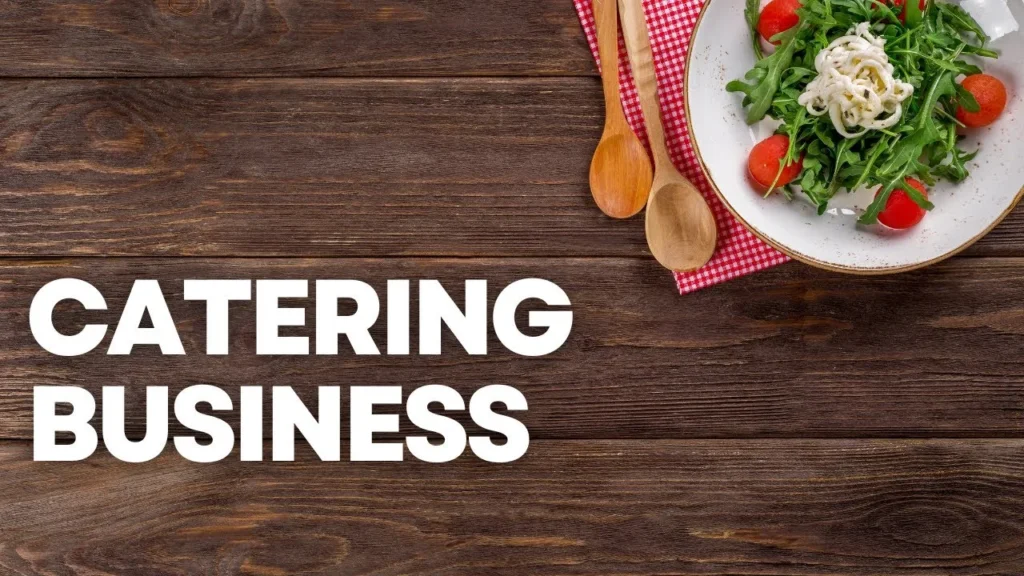How to Start a Catering Business
How to Start a Catering Business A catering business is one sure way to express your cooking creativity as you build up a lucrative business. With the right approach and planning, you can create a unique service that will help meet the needs of your clients. This in-depth guide will walk you through how to start one.
Step 1: Market Analysis
First, find out the level of competition, demand in your location, and preference of your potential clients regarding catering businesses. Decide on specific catering services your venture can offer and identify any gaps in the market.
Create a business plan in step two.
Your business plan should encompass your firm idea, target market, menu items, pricing strategy, marketing technique, and financial predictions. A well-written and well thought-out business plan will guide you and, when necessary, help you secure funding.
Step 3: Selection of Business Structure
Choose a business structure: You can select from a variety of structures, including a corporation, limited liability company, partnership, or sole proprietorship. With each of these different business structures comes different tax and legal implications, so it’s best to seek the advice of a lawyer or financial professional.
Step 4: Licenses and Permits
Obtain all necessary licenses and permits, such as business and food handling permits, to ensure that you are in compliance with all local ordinances. To determine if specific rules may apply to the catering business or operation, you will need to contact your local health authority.
Step 5: Create a menu
Design a menu showcasing creativity in food that makes sense to your audience. Think of including options to accommodate multiple diets and preferences. Ensure too that your menu is able to adjust for an event size, whatever it might be.

Step 6: Safeguard Equipment and Suppliers
Purchase top-of-the-line ovens, refrigeration units, and serving ware for your catering company. Develop relationships with high-quality wholesalers who can continue to supply you with the freshest ingredients. And if you really are starting on a shoestring, you can rent equipment.
Step 7: Setting up the kitchen
In the kitchen, you will be required to observe the rules concerning health and safety. Ensure that the kitchen in which you are going to operate is large enough to handle substantial food production; this could be a commercial kitchen or, if your local regulations allow it, a home kitchen. MEDIUM
Step 8: Staffing
Hire adequate workers who will be able to assist in serving, food preparation, and logistics. Provide them with extensive training so that the same quality and service can be offered. For your events to be successful, it takes collaboration.
Step 9: Market Your Catering Business
Develop a marketing strategy for your catering business that will involve attending local events, having a great website, leveraging social media, and networking with event planners. Word-of-mouth and online reviews can also impact your business in a big way.
Step 10: Planning and Execution of Events
Manage small events in the beginning to gather a reputation. The service details, first-class customer support, and client feedback help build continuous improvement. With every event conducted well, this means expanding clientele and strengthening the brand.
FAQs
Q1: How much does it cost to start a catering business?
A: Startup costs can range from $10,000 to $50,000, depending on the scale of your operations, equipment, and marketing efforts. It’s important to budget for initial costs and ongoing expenses.
Q2: Do I need a special license to start a catering business?
A: Yes, you need to obtain food handling and business licenses, and you must comply with local health department regulations. Requirements vary by location, so check with your local authorities.
Q3: How can I attract clients to my catering business?
A: Build a strong online presence, offer competitive pricing, and provide excellent service. Networking with event planners and offering tastings can also help attract clients.
Q4: What are the most popular types of catering services?
A: Popular services include corporate catering, wedding catering, party catering, and specialized dietary catering (e.g., vegan, gluten-free). Understanding your market can help you choose the right niche.
Q5: How do I ensure food quality and safety?
A: Follow strict food safety guidelines, train staff in proper handling techniques, and regularly inspect your kitchen and equipment. Consistent quality control is crucial for maintaining your reputation.


